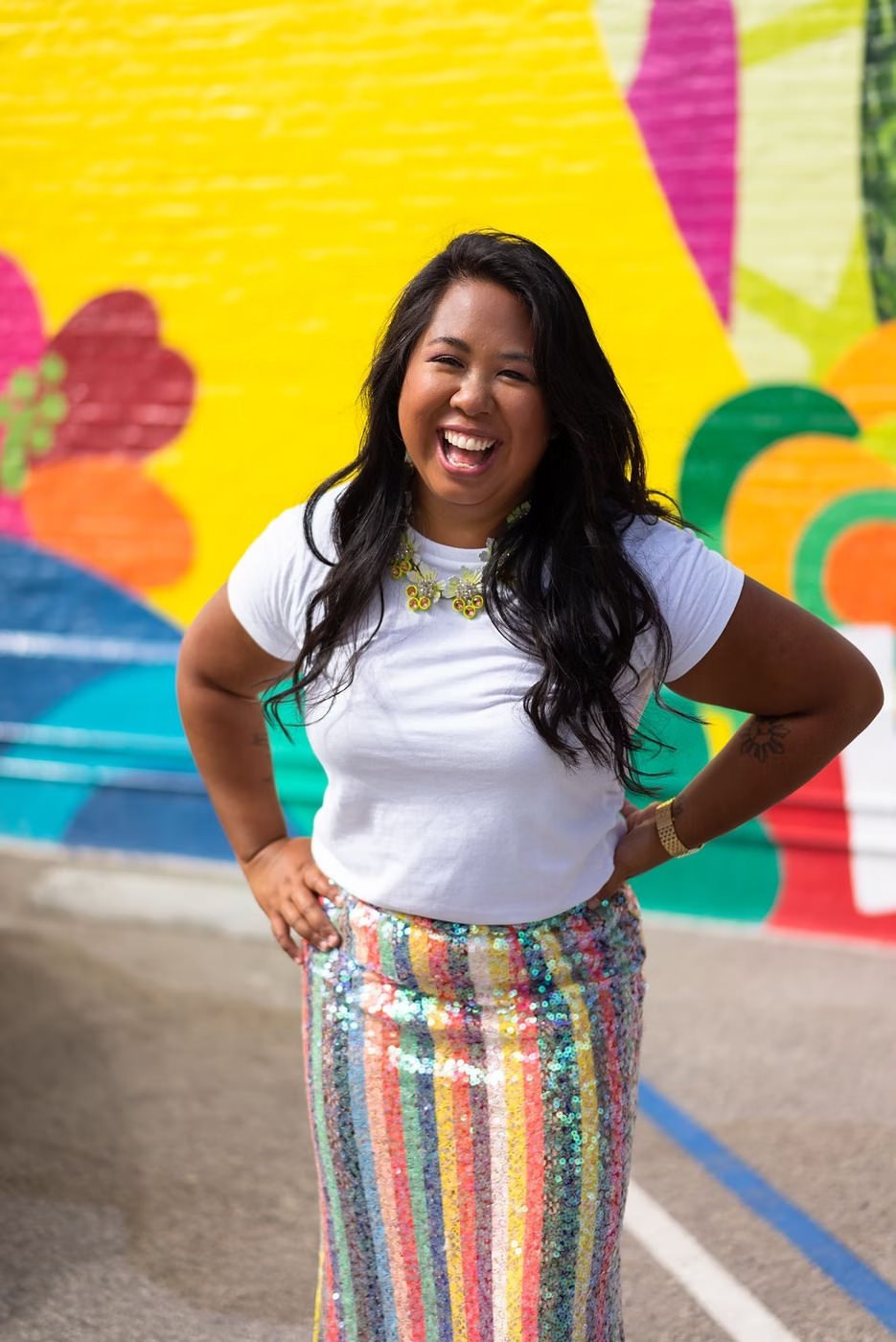Coming Home
By: Carissa Begonia
You’re eating too much.
Don’t eat that.
Don’t eat so late.
You’re eating again?
Did you eat?
For many Asian families, “did you eat?” is the equivalent of saying “I love you.” And while my mother’s concern about what, when, where, and how I ingested my food left me with years of body image issues, being welcomed home with my favorite dishes - kare kare, lumpia, sinigang - was also my mother’s way of telling me she loved me.
My mother didn't teach me how to do “girly” things like how to do my makeup or do my hair or shave my legs until I asked because all my white friends were doing it. I resented her for not teaching me how to be more feminine, but when I grew older and learned more about my mother’s journey to and through the U.S., I wondered if she had even learned these things from her mother.
I never met my lola. She died before I was born. After my mother graduated from college in the Philippines, instead of taking off for the U.S. to work as she had planned, she chose to stay at home to take care of her mother who died a few short years later.
At 24, not knowing when she would see her father and three sisters again, my mother left them all behind so she could travel 8500 miles across the world to join my aunt and start her life in the U.S. By comparison, it took me 31 years to leave my mother, my father, and my brother in New York to go just 2250 miles across the country to start my new job in Las Vegas.
My mother chose to become a medical technician not because it was her dream job, but because it was the best option for her to fulfill her dream of leaving the farm and her hometown in the Ilocos Norte province of the Philippines and immigrating to the United States.
I inherited a few things from my mother: her beautiful singing voice passed down from my lola who was an opera singer; her impeccable style; a faith strong enough to weather the hardest of storms; a deep love for family.
I also inherited my mother’s work ethic and determination. Inspired by her hard work and sacrifice, I started a women’s ERG to make sure I would be seen and heard at my workplace. I pitched to my CEO to create a new role at Zappos so I could do diversity work full-time. I started a non-profit to support school children in the Philippines. I started a community for Asian Americans to reclaim my culture, heal from my own racialized and intergenerational trauma, and help others do the same.
My mother may not be a corporate executive, a keynote speaker, a successful entrepreneur, or a wildly independent spirit.
But she’s a stronger woman than I will ever be.
Stoic, poised, selfless, kind, probably much like the women, my ancestors, before me.
Much like the woman I am today.
A few weeks ago, I went home to visit my parents after almost a year of working and traveling around the world. Opening the door, I gave my mom a hug and she greeted me with three familiar words that always let me know that I was indeed home.
“Did you eat?”
I love you too, Mom.
Carissa Begonia is a second-generation Filipina-American daughter of immigrants. She is a business and leadership coach, and the founder of CONSCIOUSXCHANGE, an equity-focused coaching and consulting company with a mission to forward the social and economic advancement of racialized communities by helping BIPOC entrepreneurs launch and scale their own businesses and achieve time, location, financial, and occupational freedom.
Carissa is the former head of DEI of Zappos. Her work has been featured in TIME magazine, and she is a requested speaker on Asian American identity and leadership, having presented at organizations including KPMG, Publicis Groupe, Kapor Capital, Pearson, and the YMCA.
Carissa is also the co-founder of Green Mango International, a 501 (c)(3) non-profit organization supporting educational opportunities for underserved school children in the Philippines, as well as the co-founder of AARISE - Asian American Racialized Identity and Social Empowerment for AAPIs, a program and community centering Asian American activist history, AAPI experiences, emotional processing, and somatic healing.
You can connect with Carissa on social media here: consciousxchange.com; LinkedIn; and IG.
Where necessary, content has been edited for clarity and readability.
© Linked Inclusion™ Corporation, 2022. Linked Inclusion™ provides resources to serve people who have been historically excluded. Our goal is to solve for Diversity Equity, Inclusion + Wellness. Visit us online at www.linkedinclusion.com, and join the professional social change management community at www.linkedinclusion.us.
"Replace exclusion with Inclusion®. We are stronger, faster, smarter, together."


